From my house in Umbria I’ve been able to see the changes in farming first hand. One by one the fields have become fallow as my older neighbors pass away and the new generation either lacks the skills or will to farm, or just sells the entire farm.
That said, there are still farms that manage to make a go of it. And these farms usually have some sort of retail business attached to them, which makes them both easy, and delicious, to visit.
It’s hard enough to find a good bakery these days, but when you find one that also grows their own wheat, mills it, and then bakes it into delicious breads, cakes and savory treats, it seems like a small miracle.
Granarium, created by the Lucarelli family, is located in the plains near Bevagna, in the middle of fields full of wheat. The wheat from the farm is threshed into grain that is stored in silos behind the mill. The only means of preservation is movement and air: there is no refrigeration involved. As the grain is needed, it is brought inside and stone mills grind it into various grades of flour. Then, in the room next door, natural yeast is added and the loaves of bread are formed and baked in wood fired ovens. Finally, the bread reaches the public in the darling store in the front. The entire cycle — from field to table — takes place on one estate.
This type of set up is extremely rare, and is the only one I know of in Umbria, and I actually don’t know of any other place that goes from seed to bread, organically, by one family. In fact, it was extremely difficult to obtain the permits to even open this type of operation, since Granarium is not simply a farm, or just a mill, or only a bakery. But the Lucarelli family persisted and managed to create something completely unique.
Their aim was to reconnect the links along the broken chain. “Up until 100 or even 50 years ago, a baker would buy his flour directly from a mill, and so know what flour he was getting and how it changed from year to year. Just as the miller dealt directly with the farmer who grew the wheat, dealing with the vagaries of weather and able to adjust. And the person at the end of the chain, the consumer, would buy their bread from the same baker for most of their lives. They would have long discussions about the bread itself: how long it took to rise, if there was any problems, or if a batch came out particularly good. All of these personal contacts and interactions were an integral part of the loaf of bread which came to the table. Our hope is to recapture that essential fact of life before it is too late.”
The owners are very proud of what they have created, and very generous with their hard earned knowledge. The entire farm, mill and bakery is open to visits. In addition to selling bread, and other baked goods, they also sell their flours as well as legumes all grown on their farm.
This post is an excerpt from my new book, Eating My Way Through Italy.
Granarium
Via Madonna della Pia 14
06031 Bevagna PG
tel: 0742.361114
Open daily 7am to 1:30pm
For more information about eating in Umbria and elsewhere download my app, EAT ITALY, available for iPhone or Android.
And for more culinary and travel inspiration please buy my books:
Eating My Way Through Italy
Eating Rome
And for my design oriented followers: Italian Rustic: How to Bring Tuscan Charm into Your Home.
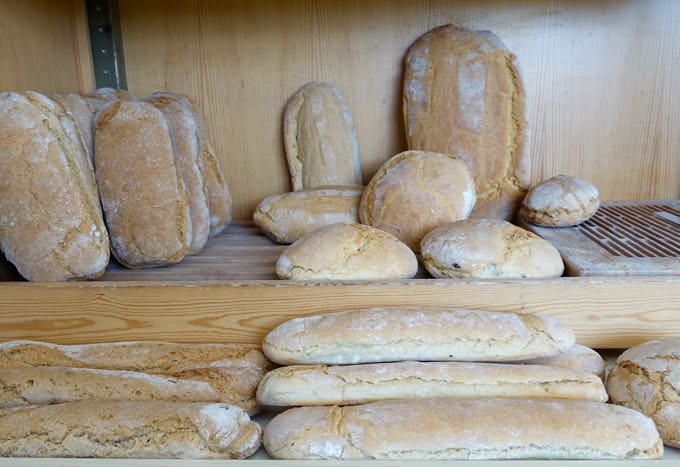
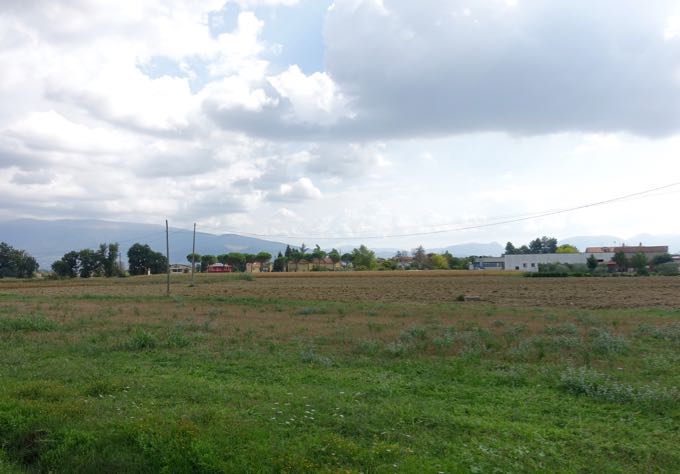
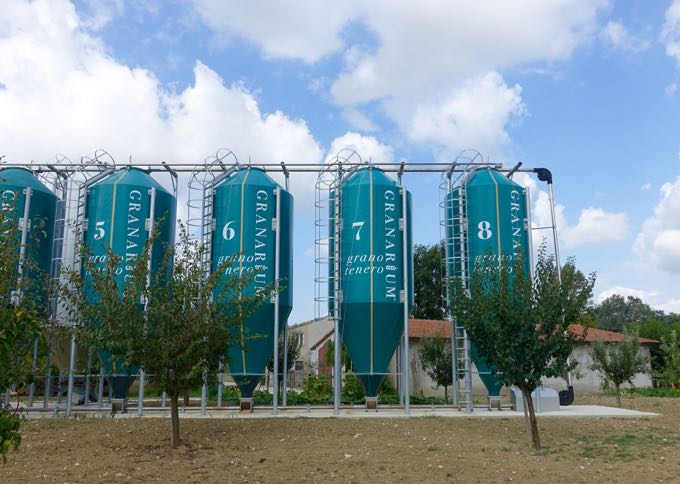
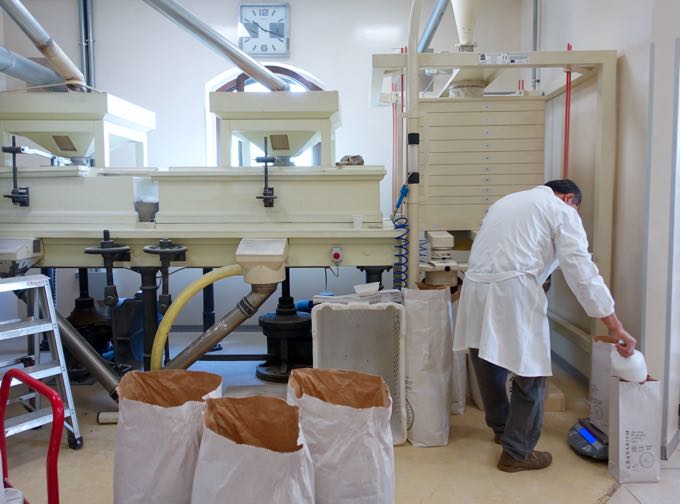
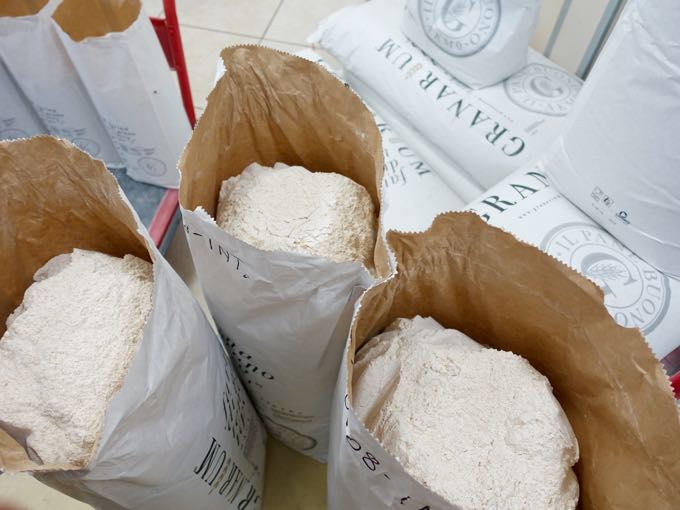
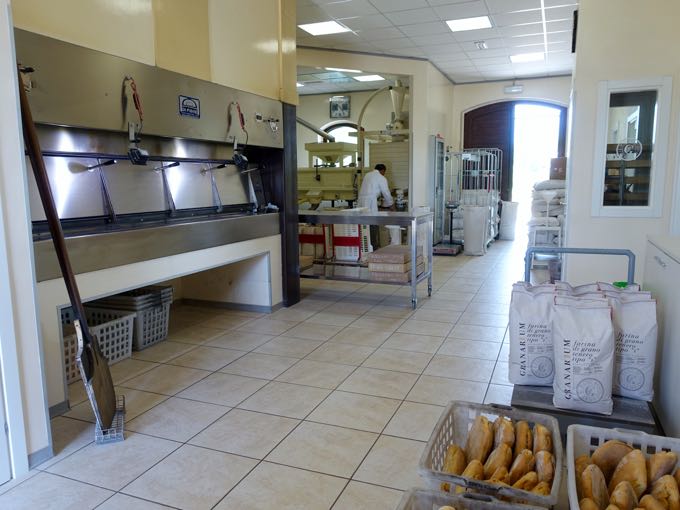
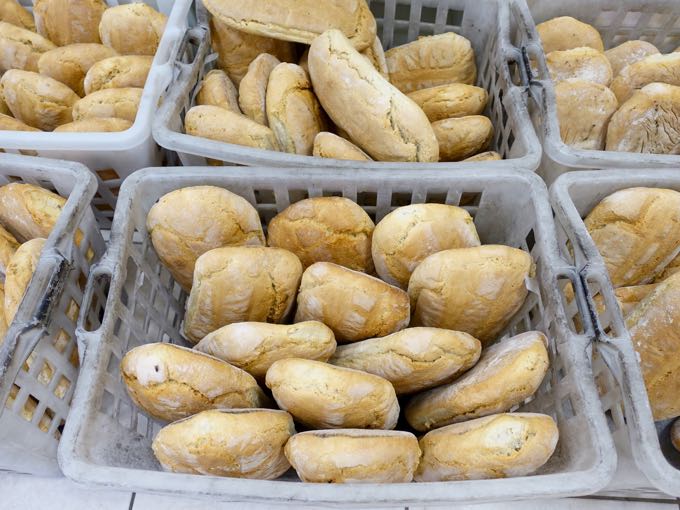
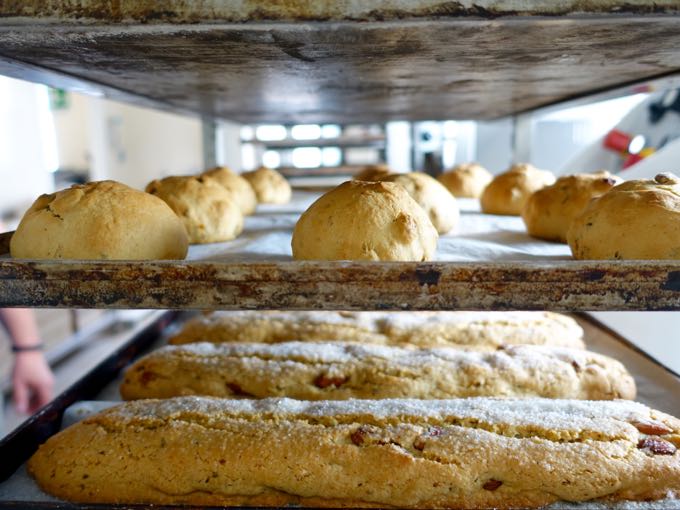
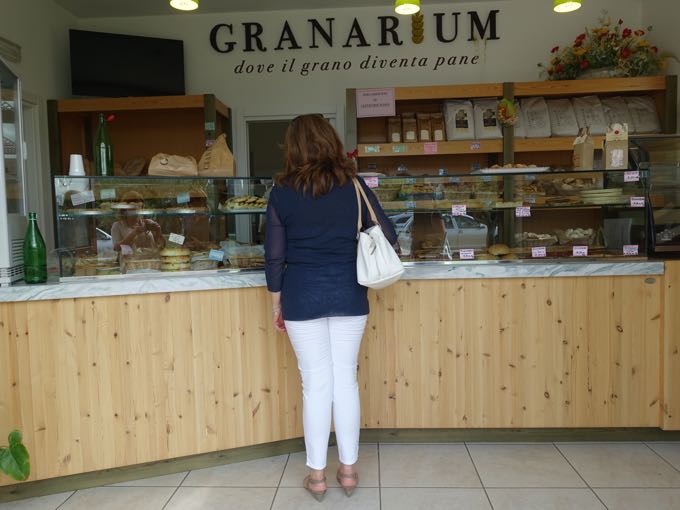
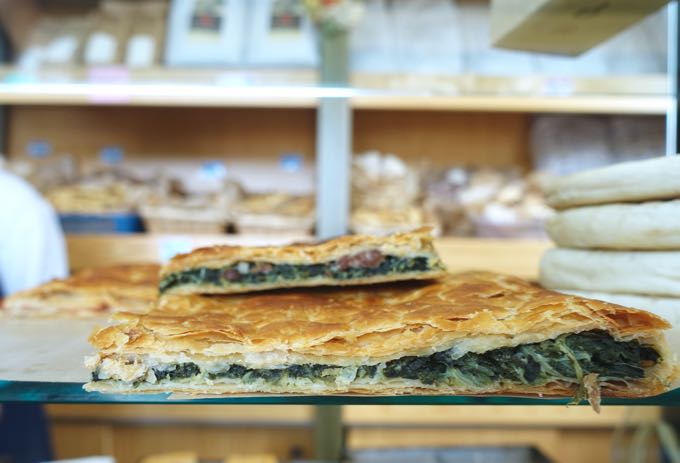
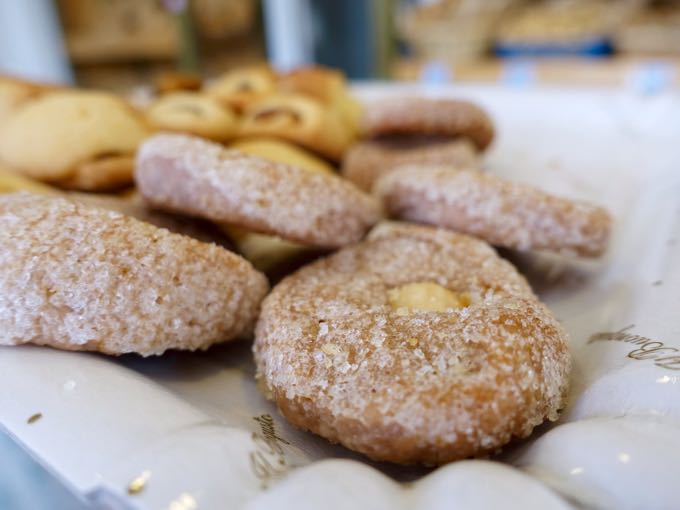
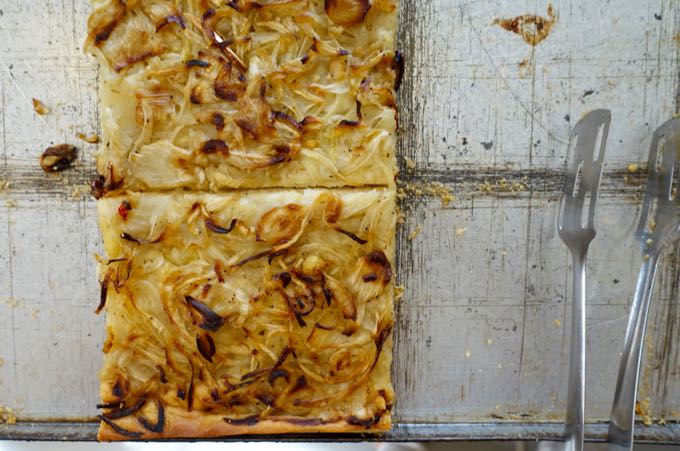
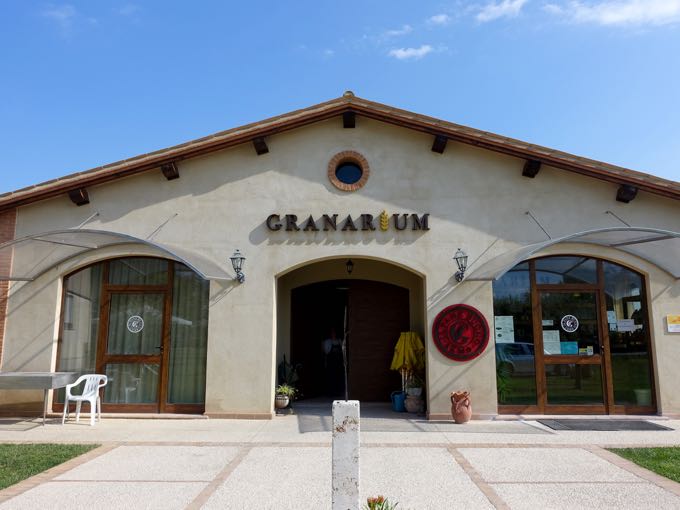
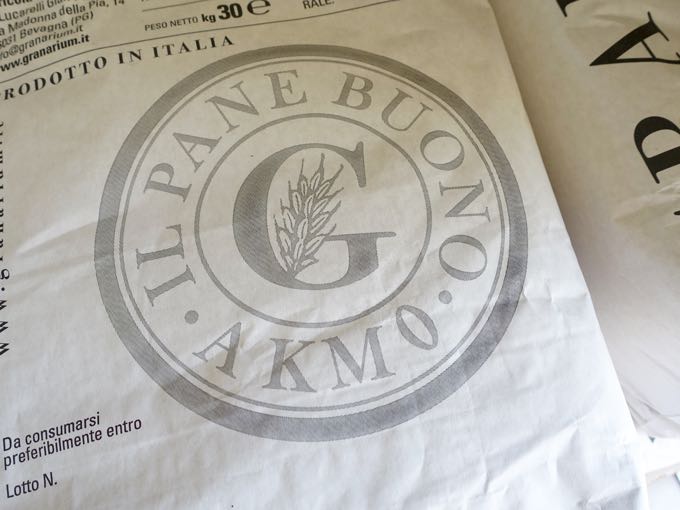
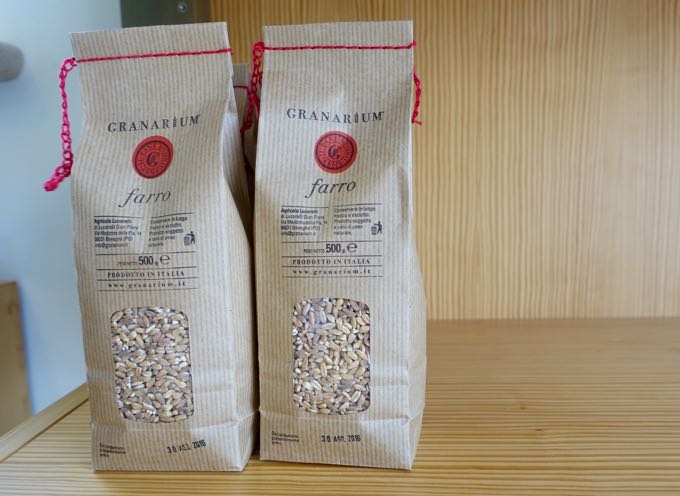
This looks like a fabulous place to visit. I hope to be in the area again one day and to check this out. I’ll definitely leave some extra room in my suitcase for food souvenirs.
We absolutely adore Granarium. We’ve been there many times and always leave with bags full. We even bought lentils and other dried beans to take home with us. If you continue on up the same road you find Cantine Dionigi. We had a wonderful tasting experience (two years in a row) and sent a case of wine home both times. We are planning another trip in April.
Thanks, I’ve seen that winery often, but never stopped in. Will do so next time, thanks for the tip!